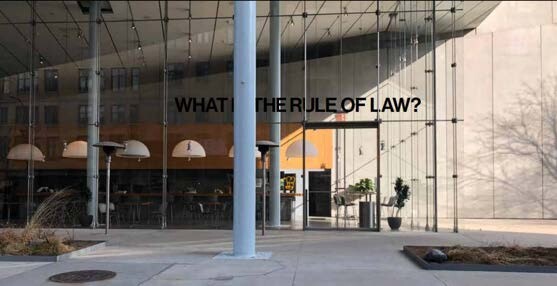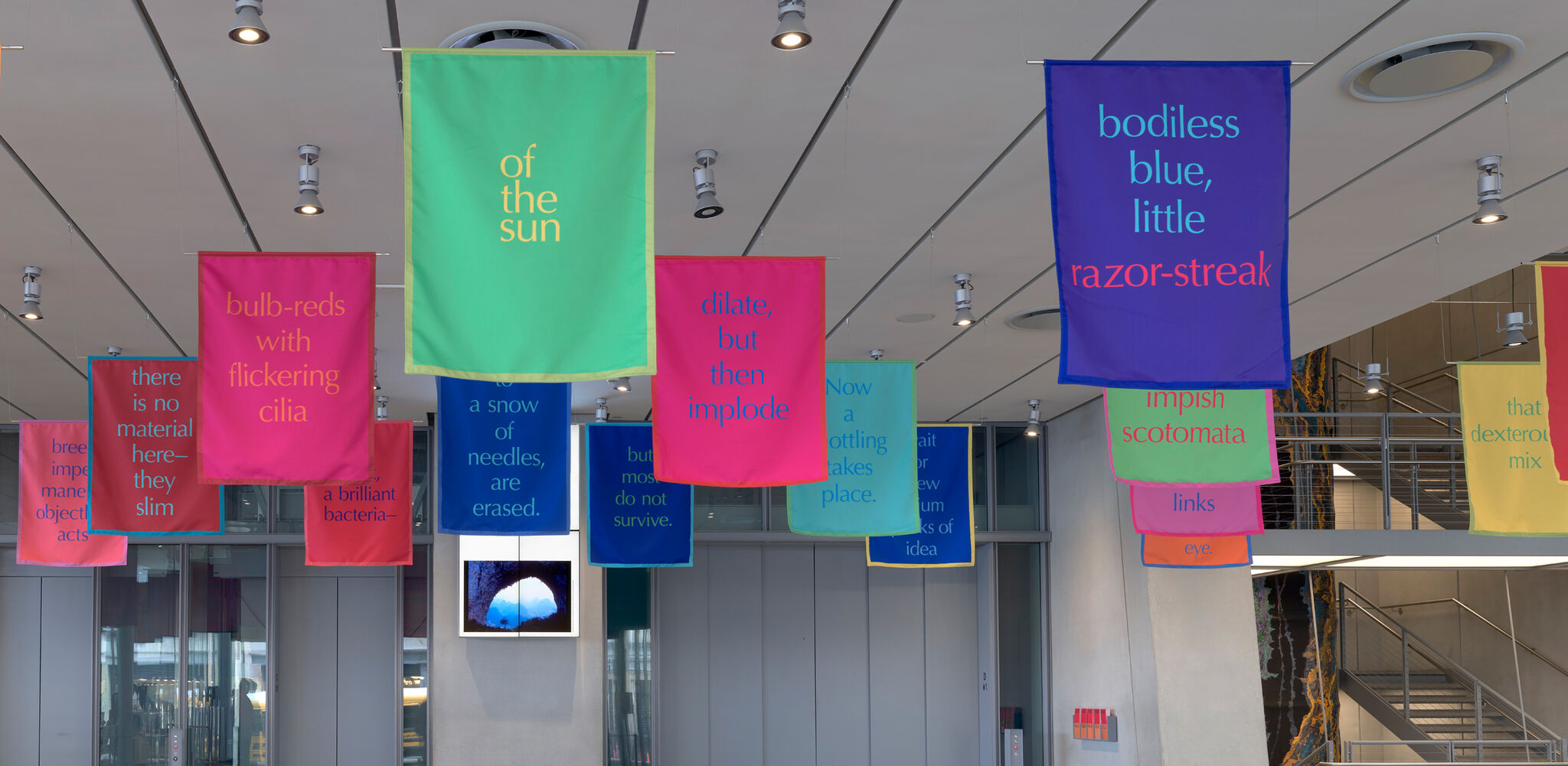Rayyane Tabet, 100 Civics Questions
Apr 6, 2022
0:00
Rayyane Tabet, 100 Civics Questions
0:00
Narrator: You can find the video Learning English on the Museum’s fifth floor. 100 Civics Questions is distributed throughout the Museum. Here artist Rayyane Tabet is discussing the work 100 Civics Questions.
Rayyane Tabet: The United States citizenship and immigration services provides study guides for these exams. So in a way you go to the exam. Knowing all the questions and knowing all the answers.
The project as a whole kind of takes this exam as a site of inquiry and kind of takes these questions and these elements out of their context of the exam and distributes them around the Museum, in the gallery, and online for them to become kind of probing.
For me, it became really interesting to follow the process of the change of status as a philosophical one, a poetic one, an artistic one.
Those 100 questions, what is the imagination of a U.S. citizen seen through the lens of the naturalization exam, especially when, if you go on the street and ask those same questions to people that are de facto citizens by being born in the U.S., most people will not be able to answer those questions. And that is the result of many things. One of which is that there's no standardized civics curriculum across the U.S.. And the idea that people in different states, in different counties, in a way learn possibly a different kind of history and even geography of the country.
And what becomes very apparent when you look at these questions is of course it tells you one specific part of the history. It focuses more on civic duties and less on civil rights. Let's say it opens up the potential for a really interesting kind of conversation around those issues.


